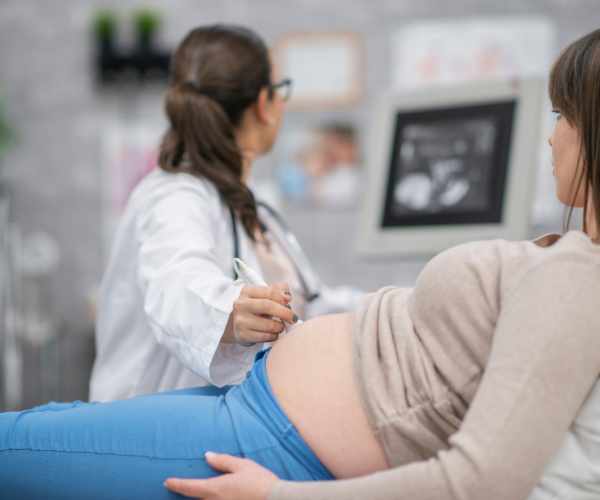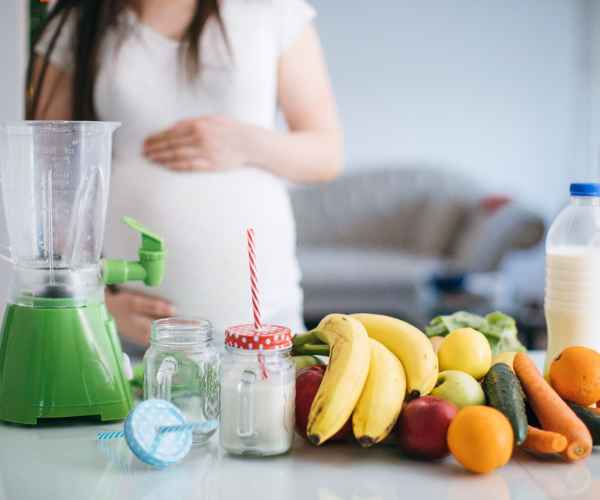Pregnancy is the stage in a woman’s life where nutrition is more than mere food. Nutrition is a dietary path not just for the mother but also the developing baby. Nutrition ensures health, growth and well-being of both. The time spent during these months is not just about physical health, but emotional strength and sanity as well. The choices made during such time are a source of a lot more than just nutrients, they provide the required strength and happiness.
From the initial weeks, a baby’s development relies on the fuel a woman’s body gives as well as what is s cresting or combining into new life, and in which every particular nutrient, with folic acid and protein included comprises a construction block. Nutrition widens the horizon, playing an immense part in pregnancy. It makes a mother strong, helps to balance emotions and even comprises stress management, energy levels and mood swings and imbalance caused by hormone changes.

In this post, we’re going to cover the following:
– The usual stages of pregnancy and what are the nutritional requirements at each stage
– What is the best nutrition and food for the baby and the mother
– Clearing some common misconceptions especially regarding pregnancy nutrition
– How various thoughts and emotions interact with nutrition and vice versa
– Easy and practical recipes for meals that are reasonably well balanced While it may sound like bullet points, all together they form a very useful guide for expecting mothers as well as understanding of nutrition throughout the pregnancy cycle. Postpartum nutrition as well as guidelines for nutrition self-licensing in access to some recommend controlled or high-sugar diets are also addressed.
The Fundamentals on Nutrition When Pregnant
Importance of Nutrition for All the Phases of Pregnancy
A woman’s pregnancy includes three trimesters and each of those three trimesters have different nutritional goals to focus on. This is because these stages are linked with important growth, development and emotional and physical alterations in both you and your baby. Here’s how nutrition affects you and your baby in all the three trimesters:
- First Triumester (Week 1 till Week 12): This stage of pregnancy is critical for structuring the main organs and for the cellular organization of the baby. In order to achieve those in the early pregnancy, nutrients such as folic acid, vitamin B12 and some iron must be taken in to ensure proper cell growth and avoid neural tube defects. Since a majority of mothers face nausea and food aversions in this trimester, when the symptoms lessen, a focus on easy to consume, nutrient rich foods like fortified cereals, vegetables and lean meat are recommended.
- Second Trimester (Weeks 13-26): The second trimester is characterized by the growth of some of the organs that were formed in the first trimester. Protein becomes a necessary nutrient along with calcium and vitamin D to help in muscular and bone growth. Normally during this stage mothers are able to expand their variety in diet due to a surge in energy levels as the blood volume requirement is bound to increase with the size of the developing child.
- Third Trimester (Weeks 27-40): This final stage is all about preparing the body for the birth of the baby while increasing the speed of growth of the baby. To supplement the growth of the baby, a whole lot of nutrients are to be incorporated in the diet such as omega 3 vitamins and choline as they help in the brain and eye development of the baby. Some people suffer from physical discomforts at this stage, like heartburn so consuming smaller meals in frequent intervals can help avoid the sensation.
Should a woman immerse herself with a proper understanding and knowledge regarding what is to be incorporated into the meal during the rest of the trimesters will augment the chances of her having a healthy pregnancy as well as the unborn child getting the required nutrients during the pregnancy.
Key Nutrients during Pregnancy
The nutrition pyramid has standard dietary recommendations for all women, but during pregnancy things get tricky. Below we discuss key nutrients to obtain in sufficient amounts from food regardless of your dietary restrictions.
- Folic Acid: There are other B vitamins that are of concern throughout one’s life, but this is one of the few vitamins for which supplementation could be used in early stages of human development, since it helps reduce the chances of neural tube defects. Supplementation daily should be about 400–800 mcg likely to be derived from some supplemented foods, citrus fruits, and green veggies. Women who take enough folic acid in their early pregnancy phase are likely to have lowered the chances of spinal cord and brain birth defects in their children.
- Iron: Along with an increase in blood plasma volume, hemoglobin levels tend to increase as well in pregnant women, thus stimulating the synthesis of myoglobin and enzymes that are formed during pregnancy. This nutrient is easily derived from lean meats, lentils, spinach, and fortified cereals. Litters of research have shown that low iron content in pregnant women results in low hemoglobin which could trigger prematurity and low infant birth weight.
- Calcium alongside Vitamin D: Procreation remains a complex but fundamental biology aspect that science captures better through analysis of skeletal abnormalities, calcium along with vitamin D remains integral in formation of bones in babies and so it is recommended to consume 1000 mg of calcium daily and 600 IU of vitamin D daily, calcium can be obtained through tofu, dairy, and leafy greens while vitamin d can come from fortified products and exposure to sunlight. A lot of clinical tests also suggest that sufficient amount of intake throughout the pregnancy reduces chances of bone density issues along with cases of preeclampsia.
- Protein: A macromolecule that consists of amino acids that serve as the foundation of the cells including tissue cells within the baby’s body. T45-100g of protein is suggested to maintain without excess strain to the mother’s health while It can be consumed through kidney beans, eggs, chicken, other meats and staple foods.
- Omega 3 Fatty Acids: Required for eye and brain development Omega 3 can be located in high amounts in salmon fish, flaxseeds and chia seeds while it roughly takes consumption of 2 servings of low mercury fish or an alternative such as a doctor backed substitute of omega 3 for a week. While it does require two servings of a low mercury fish to be incorporated in the diet or a doctor authorized substitute, it has shown to promote brain activity along with p decreasing risk of pre term births.
All of these components have a reason, as for the help demonstrate how the baby would develop to be stronger and healiders through their own organs while promoting their physical energy as well.
Combining Emotions and Food During Pregnancy
- Balanced Blood Sugar: Combining physiological as well as psychological factors, food is at the center of a pregnant woman’s life. Having regular meals or snacks within a few hours helps to control blood sugar, so there are no low zones that would lead to becoming growly or overtired. Some studies conducted show how complex carbs, protein and good fat when consumed together on a consistent basis, ultimately make it possible to improve mood and energy levels. An apple, for instance, along with peanut butter is a great source of slow releasing carbs. Such combinations also provide protein, thus making sudden energy drops less effective, i.e. it will take longer before this happens.
- Hydration: Staying hydrated is very important, both physically and mentally, whilst being pregnant. Because of no water consumption, pregnant women can feel dizzy, tired or even extremely perplexed, all of which can really change someone’s mood. Some research conducted by the American Pregnancy Association recommends that women should drink at least 8-10 cups of water so that they do not stay dehydrated due to increased blood volume. Eating water-rich items like watermelons, cucumbers and citrus can also be a decent substitute for water, especially if someone has issues with drinking plain water.
Inner Connection and Holistic Nutrition
A well-balanced diet in the course of pregnancy is not only about feeding your body but also the spirit of the child that is developing in their womb. You can meditate on what and how much to eat in a day by focusing on preparing and consuming yummy organic food. Every nutrition you take in can be a potent reminder of how your life is changing with another life. Some whole foods like fresh and sundry fruits and vegetables, wholesome grains, and lean meat give you the nutrition you need to have strength and peace within you.
Mindful eating behavior with different chewing paces and seasoning’s, as well as the sense of satisfaction that comes from the meal has a way of calming the spirit and fostering a great sense of connection with the self. Being grateful for every meal and being able to feed the baby might even help to relax the mind and bring peace and positivity during this wonderful journey of being pregnant.
Szakappan Gyoztes, Gynnogo At Sidelong: A Complete Intro On ‘Keywords’
For this, let’s discuss some more about the common signs, probable side effects, measures to avoid them and medical help related to nutrition during the time of pregnancy. Instinctively, women focus on their nutrition throughout the pregnancy term as every phase seems to be quite different than the other and poses its own unique challenges as well.
Focused & Goals Based Pregnancy Nutrition Over Various Phases Of Pregnancy
Symptoms: Pregnant women can expect some new changes and feelings due to hormone changes and increased physical effort. This includes nausea that’s also referred to as Morning Sickness, food cravings and aversions, fatigue, amongst others. Based on a research on Maternal Health, the effects of nausea for about 70% women in the first trimester are eased by having smaller portions of food more often throughout the day.
Complications: Complications that can arise during pregnancy such as gestational diabetes, anemia, and preeclampsia are able to be avoided if appropriate nutrition is maintained. Hormonal variations that alter insulin efficacy give rise to gestational diabetes, which is found in 6 to 9 percent of pregnant women. It is not severe enough for an insulin prescription, blood sugar levels can be controlled and diet that consists of whole grains and fibrous products can work too. Amnesia can be caused as a result of increased blood volume and can be managed through having food with a higher amount of iron in order to tackle the problem of oxygen supply to the baby. Pregnant women with Preeclampsia have high levels of blood pressure, It is a little difficult to treat but a diet that is high in antioxidants, calcium, magnesium, and other minerals can help keep it in check.
Prevention: Following certain nutritional methods in addition to following a healthy lifestyle can assist in avoiding some of the complications. For example, having folic acid supplementation prior the conception and carrying on with it for the rest of the pregnancy cuts the chances of having neural tube issues. Having a balanced diet that includes adequate protein, vital fatty acids, and fiber is beneficial in the maintenance of body health alongside drinking enough fluids which aids kidney functions and reduces the chances of uterus tract infections which are more common in pregnant women.
Medication: Many expectant mothers might require iron, folic acid, and prenatal vitamins for their nutritional requirements, on top of the diet that is recommended. Folic acid is particularly important since it reduces the chances of having birth defects. Research done by the CDC suggests that women trying to become pregnant or in the early stages of pregnancy should consume 400 to 800 micrograms of folic acid on a daily basis. Also, omega-3 and vitamin D supplements are often advised especially for those women who live in places with less sun exposure or those who do not eat fish.
Common Dietary Issues that Arise During Pregnancy and the Solution to Those Issues
Here is a table identifying what normally arises during pregnancies, its causes, and how these can be dealt with or avoided altogether.
| Concern | Cause | Prevention/Treatment |
|---|---|---|
| Increased Need for Iron | Increased blood volume | Eating iron-rich foods like red meat and spinach, along with iron supplements such as iron sulfate tablets, to reduce fatigue. |
| High Blood Sugar During Pregnancy | Hormonal changes | Maintaining balanced blood sugar levels through high-fiber foods, whole grains, and mindful carbohydrate consumption. |
| Stomach Issues Leading to Constipation | Iron supplements | Exercising regularly (e.g., walking, pregnancy yoga), drinking more water, and gradually increasing fiber intake for better digestion. |
| Heartburn | Relaxation of muscles due to hormones | Eating smaller, non-spicy, non-fatty, or non-acidic meals more frequently to alleviate discomfort. |
These diet concerns identified and dealt with proactively can help smooth out the whole pregnancy process. Maintaining a persistent approach and even shifting your diet slightly can help with any sore issues along with the development of the baby.
Frequently Asked Questions (FAQs)
Which vitamin is vital during the course of a pregnancy?
Out of the many essential nutrients needed for a pregnant woman, it is strongly believed that the most important is folic acid- especially in the first trimester. Folic acid helps develop the baby’s neural tube, which ultimately grows into the baby’s brain and the spine. This was also supported by the CDC’s studies, stating that neural tube defects can be prevented by taking 400-800mg of folic acid during the first few months of a pregnancy. Some natural sources include leafy vegetables, fruits and fortified grains, but during pregnancy, it is best to take a supplement. It would ensure that all your needs are met, and your growth is too.
How much weight do I need to gain during my pregnancy?
The American College of Obstetricians and Gynecologists says a weight gain of 25 to 35 pounds few women with normal BMI during pregnancy. However, this is not suitable for overweight women and those with lower BMI. Specifically, women with BMI of 25 – 29.9 would need to gain no less than 15 to 25 pounds, while those with a BMI of less than 18.5 would require between 28 and 40 pounds. Additionally, the weight recommendations depend on one factor, your weight before pregnancy. The weight allowance allows for a gradual increase which not only helps in the growth of the baby but also the body in preparation for labor. Studies also suggest that attaining the right weight during pregnancy is instrumental in preventing risks such as delivery before complete gestation period, enough development of the feti, and insufficient body weight at birth. Pregnant women are encouraged to discuss with their health care giver particularly in terms of the comfortable weight to maintain for better health of the responding mother and the baby.
Is it safe to drink coffee when pregnant?
The American Pregnancy Association also claims most women should be okay with consuming approximately 200 milligrams of caffeine, around 1 12-ounce cup of coffee. Therefore, it’s safe to say that pregnancy for most women should be clear of consuming coffee. Within these limits, pregnant women are at risk of miscarriages, giving birth to children with lower body weight, and even going through the pregnancy early. This helps highlight the importance of limiting its intake. it’s interesting to note that caffeine is not just prevalent in coffee, it is also found in tea, sodas, chocolate and some medicines. If you spend a lot of time outside the house and still feel the urge to drink coffee, only a balanced amount will quench your thirst as caffeine acts as a weak diuretic.
I do not understand if prenatal vitamins are sufficient or regular adjustment of diet is required.
A prenatal vitamin is a dietary supplement designed to help women get all the nutrients, minerals, and vitamins they need for pregnancy all in a single dose, but it does not replace a balanced diet. Cyanocobalamin, iron or calcium, which are a challenge to get abundantly through diet, are supplemented. Nutrition should ideally provide all necessary nutrients and antioxidants, which many prenatal vitamins lack. A diet which would include fruits, vegetables, lean proteins, whole grains and healthy fats will have a larger diversity of nutrients that are required for you and your child. For instance, spinach and red meat are both excellent sources of iron – spinach since it’s plentiful in vitamin C and red meat because it contains a lot of B vitamins as well. Accepting the idea of eating a full range of different foods would ensure that you get access to nutrients that will help energize, improve immune response or assist general wellness throughout pregnancy.
Conclusion
Nutrition during pregnancy is not only about healthy eating – it is about exploration, self-control and care for yourself and your child. It in essence means knowing your body and responding to its demands with respect to nutrition, fluids and sleep so as to lay a healthy ground where the demands of motherhood and the growing baby as well as herself can be met. Each nutrient you ingest from the preservation foliate in your baby’s spiraling nervous system development, or the balanced diet that replenishes your energy – all these are parts of your child and your strength.
Approach this period with gentleness, appreciation, knowledge and most importantly self-care. This journey is more about building relationships within yourself rather than just creating a new person within. It has to be noted that healthy pregnancy is a result of informed and thoughtful choices as well as small steps, which show that you are dedicated to self-care. From taking a glass of water to going for a walk, having a meal – each snap is one step closer to perfect and healthy beginning for you and your baby.






